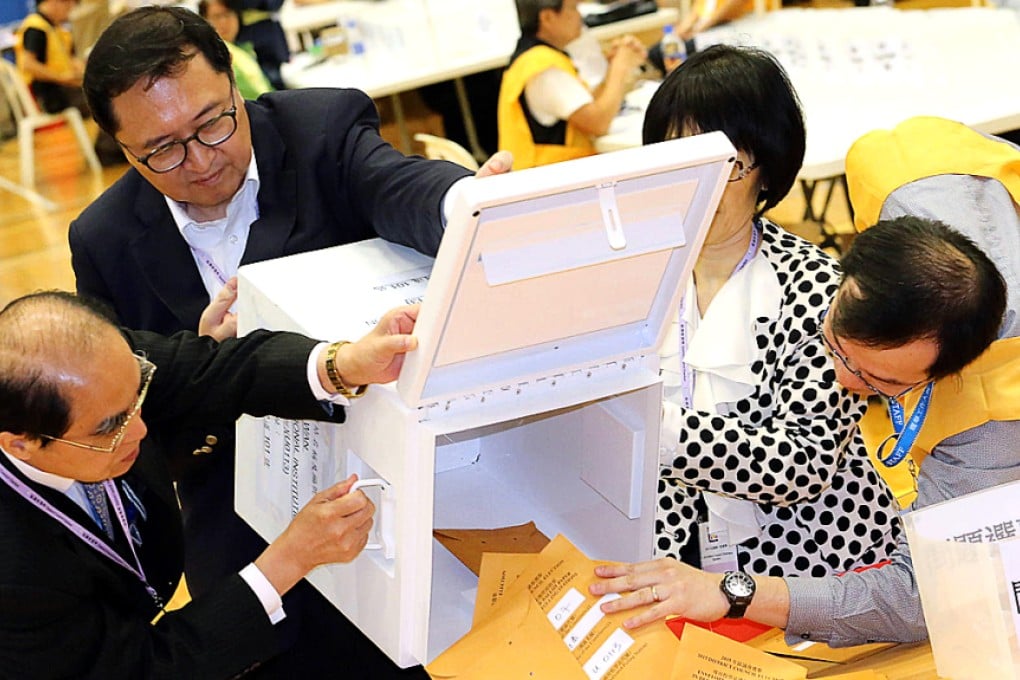Developing | Record turnout for Hong Kong's district council elections; two pan-democratic big guns out, three new pro-Occupy candidates win
1.36 million people cast ballots in district polls, with results likely to reflect whether Occupy had lasting impact on city's political landscape

Voters turned out in record numbers in Sunday's District Council elections, scoring a historic turnout rate of 47 per cent and early results saw two veteran pro-democracy lawmakers defeated and at least three candidates inspired by last year's Occupy protests scored unexpected victories.
Of the 3.12 million eligible to vote in the contested constituencies, some 47 per cent cast their ballots by the time voting closed at 10.30 pm. The turnout surpassed the previous record of 44 per cent who voted in the district council elections of 2003, held after a 500,000-strong anti-government march that year.

Fung won 2,432 votes, 99 short of won by his challenger, 25-year-old Chan Wing-yan, who is linked to both the Democratic Alliance for the Betterment and Progress of Hong Kong and the Federation of Trade Unions.
Fung’s former ally Eric Wong Chung-ki, who also stood against him in the same constituency, won 215 votes.
Fung has demanded a re-count, while Ho admitted defeat before an official announcement.